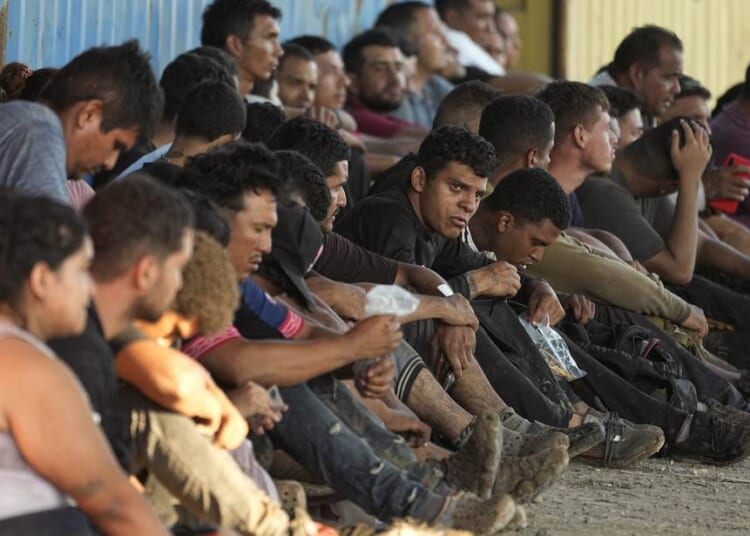I sort of did and sort of didn’t goof in the article on noncitizen voting in my article on voting registration in Arizona.
It turns out that the problem doesn’t only exist in Arizona but in every single state in the union due to federal law. The National Voter Registration Act prevents every state from requiring people to prove that they are US citizens to vote.
How about them apples?
In my view, this makes things far worse than I had originally presumed. Joe Biden really is importing millions of potential voters, and federal law actually prevents states from confirming the citizenship status of people as they register to vote.
Ironically, this standard was established firmly due to a case that came out of Arizona, when in 2004 Arizona Proposition 200 was voted on to establish a requirement that proof of citizenship should be required in order to register to vote.
The state was sued by voting rights activists, claiming that federal law supersedes the state requirement. The District Court agreed with the state, but the Supreme Court (led by, ironically, Justice Scalia) disagreed.
I find the reasoning of the court odd, but I am not a lawyer:
The National Voter Registration Act of 1993 (NVRA) requires states to accept and use a uniform federal form to register voters for federal elections, 42 U.S.C. 1973gg–4(a)(1). The form developed by the Election Assistance Commission, requires only that an applicant aver, under penalty of perjury, that he is a citizen. Arizona law required rejection of any application for registration, including the federal form, if not accompanied by documentary evidence of citizenship. The district court granted summary judgment, upholding Arizona’s requirement. The Ninth Circuit reversed in part, holding that the requirement is preempted by the NVRA. The Supreme Court affirmed. The Elections Clause imposes on states the duty to prescribe the time, place, and manner of electing Representatives and Senators, but confers on Congress the power to alter those regulations or supplant them altogether. The Clause confers authority to provide a complete code for congressional elections, including regulations relating to “registration.” The NVRA term “accept” implies that the form is to be accepted as sufficient and Congress, when it acts under the Clause, is always on notice that its legislation will displace some element of a state’s preexisting legal regime. While the NVRA forbids states to demand additional information beyond that required by the federal form, it does not preclude states from denying registration based on information in their possession establishing the applicant’s ineligibility. The NVRA can be read to avoid a conflict, however. The NVRA permits a state to request state-specific instructions on the federal form and a state may challenge rejection of that request. That alternative means of enforcing its constitutional power to determine voting qualifications remains open to Arizona.
In other words, states have the right to determine voting qualifications but have to beg the feds to allow them to do so. That is quite a definition of rights.
I make no claims to being a lawyer, so I defer to the Court’s reading of the Constitution, obviously. Which makes the issue even more pressing–the current federal voter registration form does not require any proof of citizenship at all, and all states are required to accept that form.
This means that the current immigration crisis is creating, de facto, if not de jure, millions of potential new voters. States can, should they so choose, investigate whether a voter is a citizen if they have information on hand, but there is no mechanism available to ensure that the voters who register are in fact eligible–and you would have to investigate every case. It’s not even clear that investigation beyond “information in their possession establishing the applicant’s ineligibility.”
After the fact criminal investigation, if voter fraud is reasonably suspected, an investigation could take place, but the votes are already cast and there are potentially millions of cases to be investigated and adjudicated.
The problem, then, is not Arizona’s laws but federal law and the current massive importation of potential voters. I would suggest that anybody interested in checking into what is happening during the election keep track of voter registrations over the next several months to see if there is a sudden spike from areas where illegal immigrants are settling.
This is, of course, insane. And even worse than I thought.

